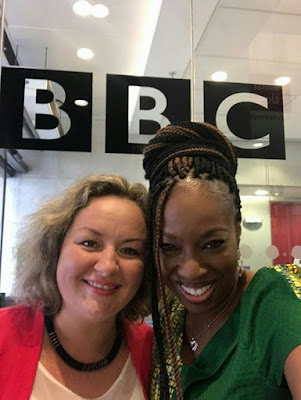Why should I be a Catholic? How can I be better at it?
My dear brothers and sisters, we need to evangelise.
The world needs the Gospel message today more than ever, and that message means more to people alienated from the reality and true nature of being by today's noisy, busy, atheistic world, than ever before.
The world thinks it knows what that message is, but somehow it has twisted and confused the message so that it bears little relationship with the reality. So we need to be that reality and we need to have our conversations in the context of where people are and what their misgivings/ misunderstandings about the Christian proclamation are.
Simply put, that message is that you are created, you are loved and you are redeemed by Jesus Christ.
We need to assert the simple truth that followers of Christ follow because they believe in love, in truth, in honour & integrity. Being a Christian means standing for family, for society, for justice, and these are all things that bind us together in a positive way. So much of our culture commonly espouses ideas which cause division, fear of the other, etc. Christianity breaks down those divides and joins us together in a common dignity: we are all known and loved by God. Indeed, God loves you so much that He died for you. He knows the very essence of your being, the most fundamental depth of who you are, of what it is that makes you, you. And He cares about you. What happens to you.
Knowing and living with and in Christ compels the individual to share that knowledge and love, born of a daily relationship, with others. But in order to do that, we must, in the first instance, attempt to understand exactly where the other person is in terms of life, belief and relationship with God.
Living as a Catholic, receiving the Eucharist, encountering Christ in a physical way in the Sacraments, going to Mass, praying, has a real effect on how you live: it really does change your life.
I know my faith is what keeps me going when things seem impossible. It gives a context and a support that I don't think I could cope without, given the incredibly difficult situations I have faced in my life over the years. I hope that my resilience in the face of adversity gives witness to the fact that Christ walks with me through the difficulties and joys of my life. With this relationship comes a companionship that means I never feel alone. And when things are at their most trying, I feel wrapped in a warmth and care that keeps me going, keeps me trying, keeps me sane, even.
When I am going through difficult times, I turn more intensely to prayer and to my faith. I look to its teachings to help me understand where I am failing, where I need to ask for forgiveness, for assistance. Constantly re-evaluating my behaviour in relationship with others is an important part of my faith. It keeps me mindful of the duty of care and respect I have towards others and keeps me trying; keeps me working to become a better person, brother, father, husband, son.
Like it or not, life is constantly in motion; it is change and we can choose to object to that change, to try and compromise it, or to utilise it to grow and improve. This is a reality, not a theory!
Growth incorporates physical change, but we also need to be aware of our need to grow intellectually. We all need to grow and study in order to be able to experience this closeness with God and, also, in order that we are properly equipped to evangelise others and OURSELVES! You see, the reality that we are constantly called to grow and develop, is part of our Catholic faith as well as a fact of life, as we are all on the path to sanctification, to sainthood. As Christians, we journey into God and Christ is calling us every day to develop. It is He who calls us, challenges us and asks; can you reach out for Christ a little more every day? It may not surprise you to know that there is great satisfaction in this forward motion in faith. If we stand still, we stagnate. We need to keep moving forward and to continually evaluate and renew our own spiritual life and praxis.
When we feel particularly down and stagnant, to embrace this motion, and to ask Jesus "What do you want me to do for you today Lord?" can yield surprising and vibrant results!
So, what can we do in real terms to develop this spiritual movement in our lives?
Well, here are a number of ideas you may find obvious, or you may find helpful:
We need to read and study Sacred Scripture. We need to understand that the Bible is the way God communicates His will to us. If we want to evangelise, we must be biblically literate. The Bible is one of the three fundamental places where Catholics get their knowledge of God from (along with Sacred Tradition and the teaching authority of the Church, the Magisterium). We need to understand it as a library of literature which tells a story, offers reflections, holds a history and a hidden spiritual depth.
We need to develop a divine perspective or world view. We need to understand our position in a global context. St Paul asks us to renew our minds, so that our perspective is aligned with the way God sees the world, irrespective of the baggage we carry with us, our experiences, good or bad, growing up. We need to cease our petty concerns and squabbles and rise up above them to consider them from God's point of view. Life is short and eternity is long, and our struggles here will soon be done.
We need to enrich our prayer lives. We can do this by simply reading Magnificat, the Office, the Bible. But try to read some books that inform and deepen your faith. If you are just starting out, Scott Hahn is a great author to help in this regard. But even more basically, you could try and watch EWTN. I especially find this helpful last thing at night before I go to sleep. Late at night, they show the Mass of the day, followed usually by the Divine Mercy Chaplet. I personally find this a really valuable way to prepare for sleep, and I find I sleep much better. If you introduce these things, you soon find that your reading informs and enriches your prayer life. We need to fill our minds with spiritual reading, because this fills our minds with spiritual thoughts and our minds turn to naturally to God.
We need a sense of progress and development in our lives. We need joy and peace to flow into our society. I'm not talking about material things, but rather spiritual progress, which fosters a sense of wellbeing. The Greeks call this theosis or "goddening". If you are progressing, you feel like you're winning!
To find and maintain peace through all the trials of life, you need an eternal perspective and to live your life in hope and faith, confident in the promises of God. Bad things do happen and we can prepare now to have peace in these things if we develop our interior lives.
So what are the tools we need in order to achieve this?
- A good translation of the Bible (Douay Rheims, NRSV Catholic Edition, etc). Make sure it's a Catholic edition!
- A copy of the Catechism of the Catholic Church
- Access to the Church Fathers. You can find this at http://www.newadvent.org I also find http://www.catholic.com/ really useful for this.
- Access to the Summa Theologia
- Access to Papal Documents. The Vatican is probably the best site for this: http://w2.vatican.va/content/vatican/en.html
- A plan of life. How you structure your prayer life, you wake up, what do you pray? What about at lunch? In the evening? Where do the Angelus, a daily offering, the Rosary fit in? You must develop a habit for this.




Comments
Post a Comment